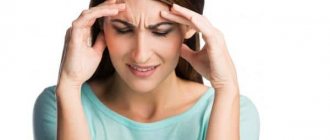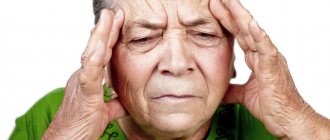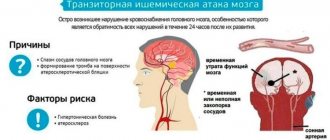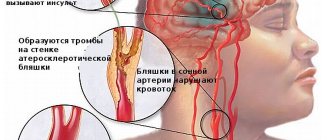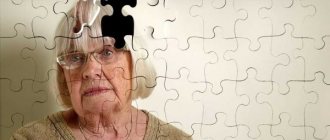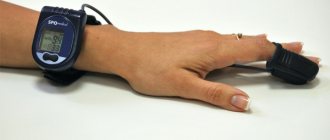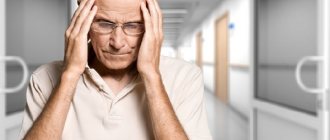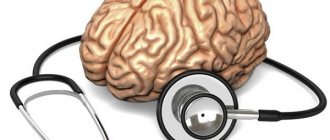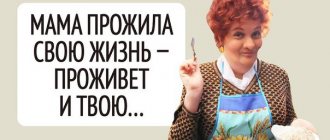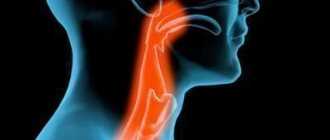What is a stroke?
A stroke is an acute disruption of blood flow in the brain area. The attack can last from several minutes to several hours. During this time, due to insufficient nutrition of tissues and cells, they die. Depending on which part of the brain is affected, the consequences of the disease will depend.
It is customary to distinguish between two types of stroke:
- Ischemic. Occurs when a vessel is blocked;
- Hemorrhagic. Occurs when a vessel ruptures due to strong blood flow.
The second type is less common.
A stroke attack usually occurs with fairly severe symptoms. Among which:
- Acute headache;
- Nausea and vomiting;
- Weakness in the limbs;
- Impaired concentration of movement;
- Impaired visual, speech, and auditory functions.
Acute headache is a symptom of a stroke.
A micro-stroke may also occur, in which the blood flow normalizes on its own.
In this case, the symptoms of the attack can be greatly muted and expressed only in dizziness and headache.
For what reasons does the disease occur?
A cerebral stroke can be either ischemic or hemorrhagic. Consequences are the result of one of several causes. Namely:
- If the vessels are narrowed or blocked, this indicates that an ischemic stroke has occurred.
- A hemorrhagic stroke occurs when there is bleeding in the brain or its lining.
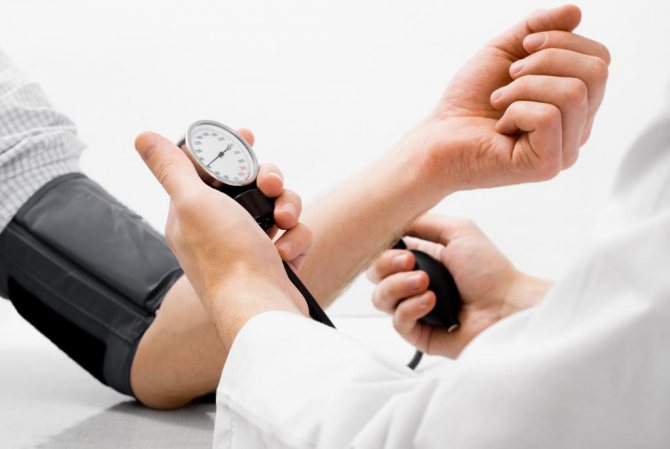
Among the main causes of the disease are:
- Hypertension. Due to a sharp increase in blood pressure, there is a strong load on the vessels, as a result of which they become less elastic and can rupture.
- Heart diseases. If there are malfunctions in the cardiovascular system, blood clots can form, which disrupt the heart rhythm, therefore increasing the risk of stroke.
- Due to blockage of blood vessels with cholesterol plaques, a stroke develops.
- With diabetes mellitus, structural changes occur in the walls of blood vessels - this is one of the most serious consequences of this pathology. Due to the depletion of blood vessels, the risk of their rupture increases.
- Sometimes, the walls of the arteries of the brain vessels protrude (expand). Such formations are quite specific. Their wall is much thinner than that of the blood vessel on which the aneurysm appeared. For this reason, a stroke may occur.
- Blood diseases. If a bleeding disorder is present, a blockage of a vessel in the brain itself may occur. Thickening of the blood provokes the formation of clots.
- Due to poor nutrition, cholesterol in the blood increases. Doctors recommend eating a healthy and balanced diet, eating more vegetables and fruits. Useful ingredients saturate the body with essential elements and vitamins, so blood vessels begin to function better.
- Unhealthy Lifestyle. Smoking and alcohol have a detrimental effect on a person's overall health. In addition, bad habits violate the integrity of blood vessels and increase the risk of developing hypertension. For this reason, a stroke occurs.
You should know that a stroke can occur not only in an elderly person, but also in young people due to the presence of chronic heart disease and an unhealthy lifestyle.
The role of psychosomatics in the development of pathologies in the body
Psychomatics as a science became widespread in the mid-20th century. This direction in medicine implies that there is a very close connection between a person’s mental state and his diseases. It is assumed that a number of pathologies arise or receive their active development precisely as a result of various kinds of experiences, stress, and emotionally unstable states.
Initially, it was believed that the following common diseases were most susceptible to psychomatism:
- Hypertension;
- Arthritis;
- Bronchial asthma;
- Hyperthyroid syndrome;
- Stomach ulcer;
- Neurodermatitis.
Over time, the list expanded to include many other pathologies, including stroke.
According to various theories, provoking factors of psychomatic reactions can be:
- Self-hypnosis;
- Self-flagellation;
- Internal self-conflict;
- Psychological traumas from the past;
- Identifying oneself with another person;
- The presence of a conditional benefit from the disease.
The mechanism of occurrence of psychomatic reactions implies that a person does not want to accept and process some emotions psychologically, or does it incorrectly: he is afraid to admit something to himself, tries to erase unpleasant memories from his memory, seeks attention from loved ones in any way, including the willingness to cause them pity, getting sick. As a result, emotional stress, which gradually accumulates and increases, leads to disruption of autonomic functions, which in turn negatively affects the functioning of internal organs and systems.
Feeling of hatred
Considering the psychosomatics of a stroke, we can conclude that often older people develop hatred for something or someone. This provokes the occurrence of a stroke. Resentment, anger and hatred have a detrimental effect on a person’s well-being. Many people want to shout to the whole world: “I hate everyone!” Doctors say that older people often become angry with the whole world and hate loved ones, while young people enjoy life, laugh loudly and lead the lifestyle that suits them. Anger and hatred often provoke a stroke.
Psychological causes of stroke
Various theories and schools put forward their points of view on what most often becomes the psychological cause of stroke. The most popular of them are:
- World-famous American psychologist Louise Hay. According to her point of view, a stroke occurs when a person loses interest in life, stops enjoying little things and gets stuck in routine. Also, among the causes of this disease, Hay identified an internal denial of life and a complete reluctance to change one’s life and oneself;
- Russian researcher Valery Sinelnikov examines 4 main causes of stroke. Among them: pathological jealousy, dissatisfaction with one’s life and reluctance to adapt to innovations, fear of being lonely, constant suppression of emotions. In his practice, Sinelnikov encountered precisely these categories of people who survived a stroke;
- Canadian psychologist Liz Burbo claims that a stroke is a consequence of a conflict with one’s own self. At the moment when principles and attitudes go against the real situation, consciousness can malfunction and it all ends in a stroke;
- Russian psychologist Elena psychologist, in her works on the study of stroke, suggests that the phenomenon occurs at a moment when a person cannot solve a certain problem for a long time and, when the situation reaches its peak, a disruption of cerebral blood flow occurs, in simple words, a stroke;
- Psychologist and practitioner Oleg Torsunov believes that pathology arises due to such negative factors as envy, greed, lust, as well as anger and madness.

. Thus, there is not one single cause of a stroke of a psychological nature, although in general they are all similar in some way.
stroke, and the occurrence of diseases
Varya, response to the message about the cause of the stroke (Niki).
>But if it turns out that one has a contradiction. and another person close to him had a stroke. What then should indicate this in the map?
And the disease is always provoked from the outside. Is it possible to have a stroke NOT due to worries about a loved one? I recalled all the cases of stroke and its threat known to me, and in only one case it seemed that the person simply died of old age. Let's try to reason.
Diseases are usually provoked by external conditions, which can either expose or create internal contradictions. When we encounter an external problem, we first try to solve it at the logical level. If a person did not recognize it as a problem (did not notice or underestimated it), rejected it with his head, it descends to the emotional level, unpleasant sensations appear in the lungs (stuffy, cramped) - did not discuss it with anyone, did not connect another head, then it descends lower to heart, it’s pressing there, he shrugged it off - it went lower to the stomach and abdominal organs, causing severe emotional anxiety, nausea and a feeling of twitching, I didn’t understand why this feeling - went lower and deprived me of strength, exhaustion, fatigue, wakes up in the morning already tired, exhausted .
As the level decreases, there is less and less awareness, more and more emotions and inadequacy, it is more difficult to resolve the problem, it is more difficult to experience physiologically.
However, there may be such a problem when a person is aware of the problem, but cannot solve it, and it multiplies throughout the body - and the head explodes, and then the cough is added, and the heart is compressed, then he also feels nauseous, and also the strength is depleted - all bouquet of pleasures
